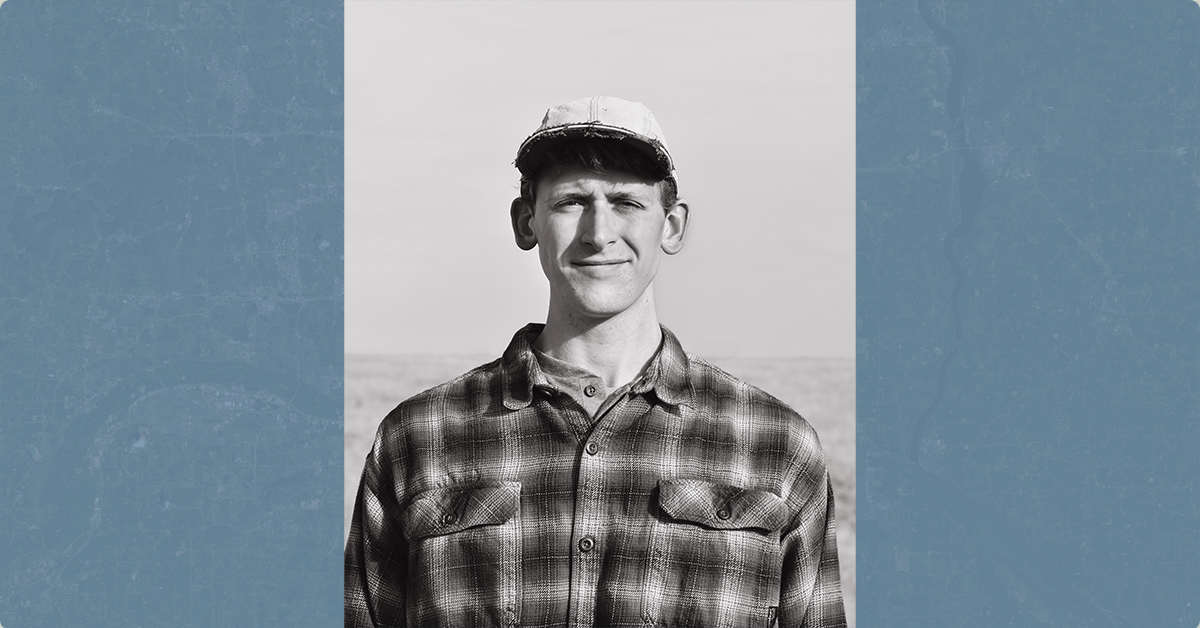Fall intern helps map out FMR conservation strategy
FMR has permanently protected 45 sites in the greater metro area since 1993. We select priority areas for preservation based on biodiversity and habitat needs, connection to other natural areas, water quality protection potential, community desires and other factors. (Read more about how we choose our conservation and restoration sites.)
As the impacts of habitat fragmentation and climate change ramp up, it's even more crucial that we strategically approach land protection. Our fall 2021 Land Conservation intern, Nick Jacobson, created a tool to help us answer the question of where to focus in the coming years — Which lands can we most effectively protect, restore and enhance along the Mississippi River for its wildlife and human communities?
Nick's analysis will launch our next wave of conservation efforts as former FMR Ecologist Alex Roth steps into the Conservation Director role. Conservation biology has long informed the way FMR provides habitat: riparian habitats are especially important, corridors of habitat help link vital places, and climate change means wildlife need new ways to move to key habitats.
Nick's work gives FMR an even greater focus on places like the Vermillion River, a key tributary to the Mississippi River, and parcels within four metro counties that can connect parks and other protected places to make functionally larger, less fragmented habitat. With this information, FMR will be able to work with private landowners interested in placing conservation easements on their property, and partner with public land managers (like the Minnesota Department of Natural Resources, counties and municipalities) to help them build their network of protected places.
This project will make a significant difference in FMR's ability to protect important habitat.
An interview with Nick
FMR's outgoing Conservation Director Betsy Daub asked Nick to share more about his internship and his contributions.
Betsy: Tell me a bit about where you are from, where you are in your studies, and how you became interested in environmental issues.
Nick: I'm from Grinnell, Iowa. Growing up in a small town in the rural Midwest, I was surrounded by a matrix of industrial agriculture, similar to much of the Mississippi watershed. However, I was fortunate to have grandparents in northern Minnesota who we would visit often when I was younger. These trips hold many formative memories for me, but as I've grown older I've especially come to appreciate the abundance of public land that endows northern Minnesota.
This duality between my hometown and northern Minnesota has given me a heightened appreciation for publicly accessible, ecologically intact natural spaces. It was a desire to play some role in protecting these places that initially pushed me towards an environmental studies major at Macalester College, where I'm currently finishing up my senior year.
Betsy: Can you explain a bit about the focus of your internship and why it was important to FMR?
Nick: My internship focused on the selection of strategic parcels around the metro area that align with FMR's goals for land conservation but have not yet seen conservation action. Much of this work was done in Geographic Information System software, which provided an excellent practical application for skills learned in my second major at Macalester, geography.
To select parcels that aligned with FMR's mission, I devised a site suitability analysis that incorporated information about parcel size, proximity to the Mississippi and other watersheds, proximity to other protected parcels, connectivity with native biological communities, and land ownership information.
In sum, this yielded around 350 parcels of interest across four of the metro counties that will be considered for conservation action by FMR as they move forward with their conservation goals.
Betsy: What were some memorable moments from your internship with FMR?
Nick: Although my internship was almost entirely remote due to the ongoing pandemic, I did have a few opportunities to interact with the rest of the staff at FMR and was struck by what a passionate and exciting group they are to be around.
This was in line with other experiences with small, conservation-focused organizations I've had in the past, and once again confirmed to me that this is the sort of work and workplace I hope to be contributing to after my time at Macalester wraps up. Thanks for a wonderful few months, FMR!
* * * * *
Learn more about our internship program
We're currently expanding our capacity for hosting paid opportunities for youth and young people. If you're interested in our internship program, sign up for our e-newsletter Mississippi Messages to get news about opportunities and more.
